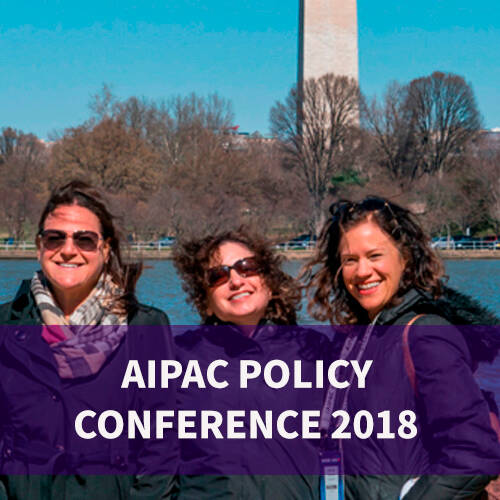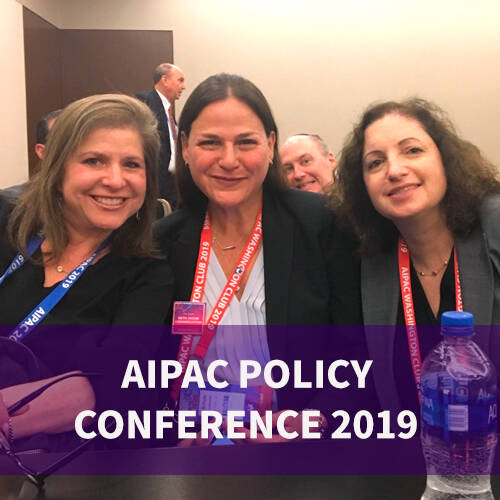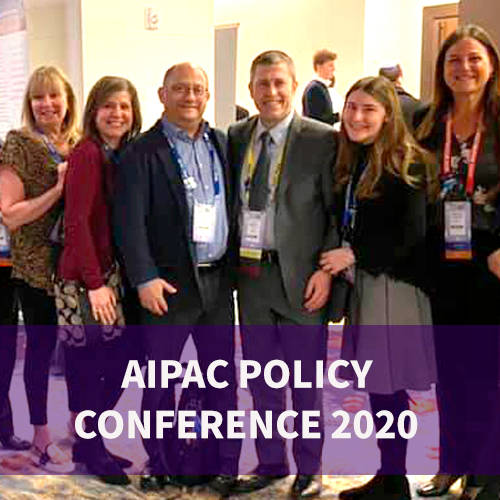Passionate political activism
Involvement in AIPAC is an excellent way to strengthen the U.S.- Israel relationship by lobbying our elected representatives on behalf of Israel. For many years, Beth Jacob would send one of the largest synagogue delegations in the country, at times over 100 people, to the Annual Policy Conference in Washington DC. Through passionate political activism, and with robust political networks led by members, we continue to ensure that our voices are heard in the halls of government on a host of issues affecting the U.S.-Israel alliance.







